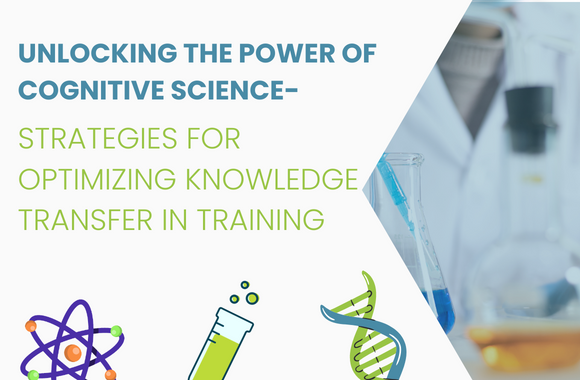
Cognitive science is a fascinating and interdisciplinary field that studies the way the brain works, how we learn and process information, and how we think and reason. As a teacher, understanding some of the key insights from cognitive science can help you create more effective lesson plans and improve your teaching strategies.
One important area of cognitive science for teachers to consider is the concept of “cognitive load.” Cognitive load refers to the amount of mental effort required to process and retain information. When we are overwhelmed with too much information, our working memory becomes overloaded, and it becomes harder to learn and retain new information. As a teacher, you can reduce cognitive load by breaking down complex concepts into smaller, more manageable pieces, providing clear explanations and examples, and using visuals and other aids to help students visualize the concepts.
Another key area of cognitive science that can be useful for teachers is the concept of “metacognition.” Metacognition refers to our ability to reflect on our own thinking processes and monitor our own learning. By teaching students metacognitive skills, you can help them become more aware of how they learn and what strategies work best for them. This can lead to improved study habits, better time management skills, and greater academic success.
Finally, cognitive science can also provide insights into the importance of feedback and practice. Research has shown that regular, timely feedback can help students learn more effectively and improve their performance. Likewise, practicing skills and concepts repeatedly can help students transfer their learning from short-term memory to long-term memory, leading to deeper and more lasting learning.
As a teacher, it’s important to stay up-to-date with the latest research and insights from cognitive science. By incorporating these insights into your teaching practices, you can help your students become more effective learners and achieve greater academic success.
We can provide you with some key principles from cognitive science that can be applied to training in education.
Active Learning: Active learning involves engaging students in activities that require them to think, process information, and solve problems actively. This principle emphasizes the importance of involving students in the learning process, rather than just presenting information to them.
Prior Knowledge: Prior knowledge plays a crucial role in learning. Students learn best when they can connect new information to what they already know. Therefore, instructors should try to activate prior knowledge at the beginning of a lesson and make connections between new and existing knowledge throughout the lesson.
Feedback: Feedback is essential to learning. It allows students to understand how well they are performing and provides them with information on how they can improve. Feedback should be timely, specific, and actionable.
Multimodal Learning: Students have different learning styles and preferences. Therefore, instructors should present information in various ways, such as using visual aids, audio, and hands-on activities to appeal to different learning styles.
Transfer: The goal of learning is to enable students to apply what they have learned in new situations. Therefore, instructors should design activities that require students to transfer what they have learned to new contexts.
Working Memory: Working memory is limited, and students can only process a small amount of information at a time. Therefore, instructors should present information in small, manageable chunks and provide opportunities for students to rehearse and consolidate information.
Metacognition: Metacognition involves thinking about thinking and is crucial to learning. Students who are aware of their thought processes can monitor their understanding and adjust their learning strategies accordingly. Therefore, instructors should provide opportunities for students to reflect on their learning and develop metacognitive skills.
These principles are just a few of the many ways that cognitive science can inform teaching and training practices. By applying these principles, instructors can create more effective learning experiences for their students.
“Revolutionizing Cognitive Science Education: The Benefits of Technology in Learning and Training”
There are numerous benefits of technology in cognitive science, including:
Personalized learning: Technology can be used to provide personalized learning experiences that cater to individual learner needs and preferences.
Accessibility: Technology can make cognitive science education more accessible to learners with disabilities or those who are geographically isolated.
Interactive learning: Technology allows for interactive and engaging learning experiences, such as simulations, virtual reality, and gamification.
Real-time feedback: Technology can provide real-time feedback to learners, enabling them to adjust their learning strategies and improve their performance.
Collaboration: Technology can enable learners to collaborate and communicate with each other, promoting teamwork and knowledge-sharing.
Efficiency: Technology can make cognitive science education more efficient by automating certain tasks and streamlining the learning process.
Data-driven insights: Technology can provide valuable data and insights into learner performance, enabling instructors to identify areas for improvement and adjust instruction as needed.
Overall, technology has the potential to enhance cognitive science education by providing personalized, engaging, and efficient learning experiences, promoting collaboration, and providing valuable data and insights for instructors.